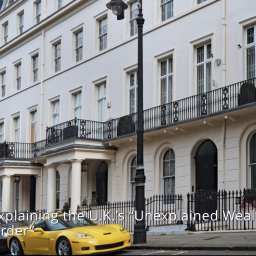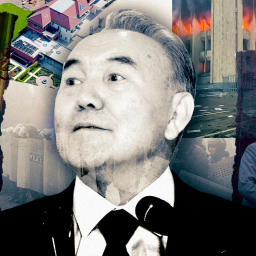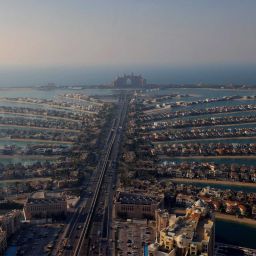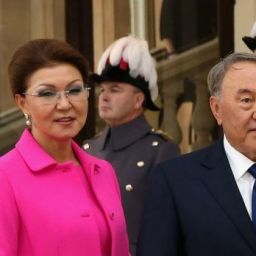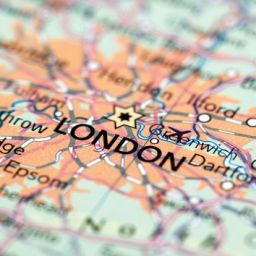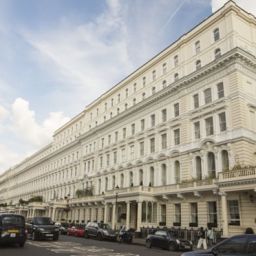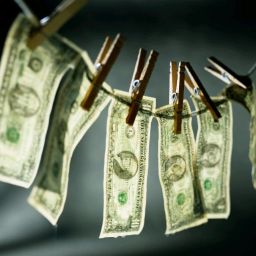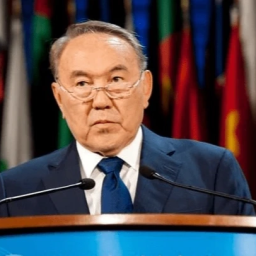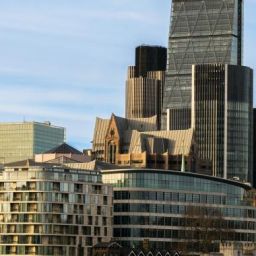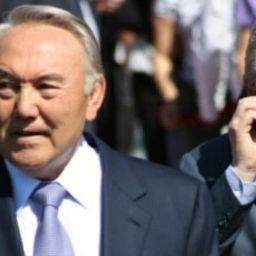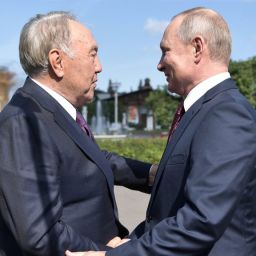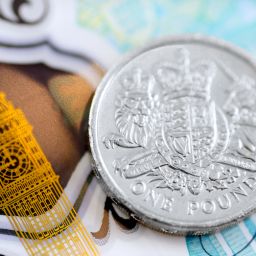Government-funded experts claim legislation to seize UK property bought with dirty money may do more harm than good
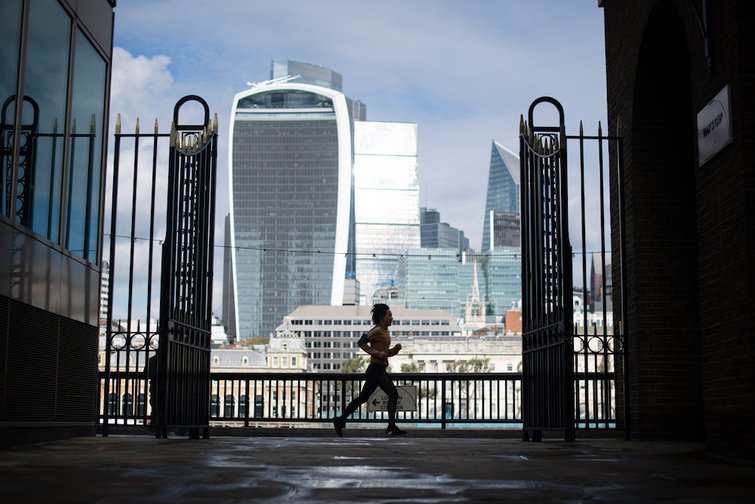
| © Dominic Lipinski/PA Wire/PA Images. All rights reserved
The UK’s toothless anti-corruption laws risk strengthening kleptocratic regimes like Vladimir Putin’s, a British government-funded report has found.
Since 2017, authorities have been able to use unexplained wealth orders (UWOs) to confiscate UK property from kleptocrats who fail to prove they bought assets with legitimate funds.
But the legislation has been used only four times, with no UWOs issued since 2019. None has ever been issued against any Russian nationals, despite MPs last month warning that the UK is the ‘destination of choice’ for Russians looking to stash dirty money in property.
Now, experts from the Anti-Corruption Evidence Research Programme have warned that UWOs may even do more harm than good because it is too easy for kleptocrats to beat them in court. The claim was made in a damning new report, ‘Criminality Notwithstanding’, funded by the Foreign, Commonwealth and Development Office.
Kleptocrats can “spin that the [court] victory ‘clears’ their funds [and] absolves them of corruption”, which legitimises them, allowing them to further their wealth, said Tom Mayne, one of the report’s authors.
Prior to UWOs’ introduction, authorities had to obtain evidence that assets were bought with the proceeds of crime before they could launch civil recovery proceedings. UWOs shifted the burden of proof onto owners, who are now required to provide evidence that a purchase was made with lawfully obtained wealth.
But the report found “a danger that UWOs simply reinforce the status quo of corrupt regimes”. It said it was “extremely unlikely” that UK law enforcement bodies could ever win a case against a kleptocrat supported by their country’s ruling powers.
“If you retain power in your home country, that means you can maintain a whole load of political connections, which allows you to acquire the evidence you need. And that’s how a kleptocracy works,” John Heathershaw, a professor at the University of Exeter and a co-author of the report, told openDemocracy.
“And it works also for the children and associates of people in power too.”
Mayne, a research fellow at the University of Exeter, added that there is also a risk UWOs could be used by corrupt regimes to cement their position against dissident exiles.
“If I was a kleptocrat and I knew that my political enemy had a house in the UK, you could leak some info about this property to the press, potentially forcing a UWO to be issued,” he explained.
Dubious proof
The report found that the National Crime Agency (NCA) has been outmatched by the multinational law firms hired by kleptocrats, which specialise in constructing alibis for suspect wealth.
Kleptocrats can win UWO court cases with dubious proof, claimed the authors of the report, which said the “mere presence of information about wealth could prevent a UWO from being upheld, irrespective of the legitimacy of the claim or the nature of the wealth”.
The report highlighted a 2019 case involving Nurali Aliyev, the grandson of Kazakhstan’s former autocrat leader, where it said the judge was “surprisingly willing” to accept the arguments and evidence put forward by Aliyev’s lawyers.
Information from Aliyev’s LinkedIn profile was cited in the judge’s ruling as part of the proof that a property was purchased independently of his connections to Kazakhstan’s regime.
The NCA had issued UWOs against several family members of Nursultan Nazarbayev, an autocrat who ruled Kazakhstan for nearly three decades. The agency believed three multi-million-pound London properties were bought with wealth acquired by Nursultan’s former son-in-law, Rakhat Aliyev, who is Nurali Aliyev’s father.
Rakhat Aliyev was once one of the most powerful officials in Kazakhstan. But in 2007, he fell foul of his father-in-law and his assets were transferred to his ex-wife, Dariga Nazarbayeva, Nursultan’s eldest daughter, in a divorce Rakhat Aliyev alleged was fraudulent. He died in prison in 2015 while awaiting trial for the alleged murder of two bankers in Kazakhstan. Rakhat Aliyev maintained his innocence, claiming the charges were politically motivated.
Nurali Aliyev did not respond to openDemocracy’s requests for comment.
If you retain power back home, you can maintain connections that allow you to acquire the evidence you need
The NCA argued that the properties, now belonging to Nazarbayeva and her son, Nurali Aliyev, should be seized because they were bought by Rakhat Aliyev, whose wealth, it alleged, was obtained through illegitimate sources.
However, a judge ruled against the NCA – meaning the UWOs were dismissed.
More reforms needed
Heathershaw said the UK government had been forced to belatedly take action on corruption because of the Ukraine war, which brought back into the spotlight past political donations to the Tory party from figures connected to the Kremlin – as well as Boris Johnson’s close relationship to Evgeny Lebedev, the newspaper owner and son of a KGB spy.
The government this month brought forward its long-awaited Economic Crime Bill after coming under fire for delaying reforms. Lord Agnew, the junior minister with oversight of fraud prevention, quit in January, accusing the government of parking the legislation in his resignation letter.
The City has been able to write the laws of Britain and create a opaque system that benefits the owners of capital
“[The bill] seems to repeat previous errors where something embarrassing happens and then the government acts. In 2016, it held an anti-corruption summit and brought in unexplained wealth orders after the Panama Papers leak. Now, with the Russian invasion, it’s really embarrassing because these things haven’t worked, so it’s rushed through another bill,” Heathershaw told openDemocracy.
While the report welcomed some of the Economic Crime Bill’s changes to UWOs – which include capping the legal costs of enforcement authorities – Heathershaw said the government has to go much further if it is to root out corruption.
“Structurally, you have to transform the whole system, as it’s really developed over about 60 years, with the emergence of the offshore system, with the deregulation of the City in the Thatcher era,” he said.
“Effectively, the City has been able to write the laws of Britain and create a system which is financially opaque and benefits the owners of capital, but doesn’t really benefit the wider public.”
Highlighted comment, by stephenphilemon
People are not focusing on the fact that the Tories are using legislation to produce the appearance of action against corruption, abuses etc. whilst bureaucracy and a failure to apply the law and act against wrongdoing mean that favoured people can carry on unchecked on their lawless and socially undesirable paths.Legislation is used as a cover for inaction and is never intended to challenge, change or penalise poor or lawless patterns of behaviour. Compare this instance with pollution. Controls and penalties are inscribed in statute, but the law and the rules are not enforced. When challenged ministers point to the law and divert attention from their systematic failure to make sure the law is obeyed and penalise breaches, however flagrant.This is, in effect, a huge smoke and mirrors exercise. On paper the government are in line with public opinion. Actually, in their actions that’s to say, they are following a 180 degree different, a quite opposite, agenda. This is a key feature of their overall MO. Johnson’s lying is totally consistent with this approach and itself calculated to divert attention from the systemic and systematic dissonance between the government’s words and their actions. Or the fact that their are actually themselves complicit in wrongdoing.
Original source of article:opendemocracy.net
